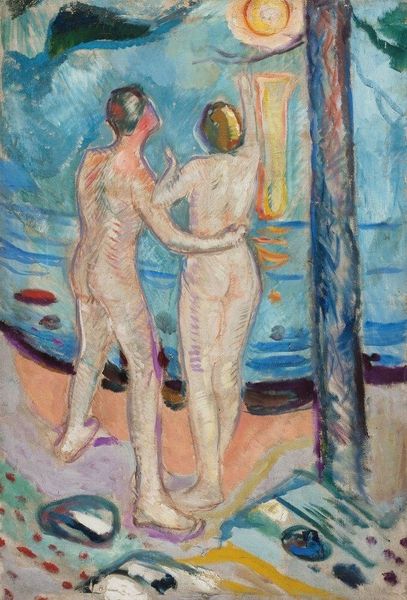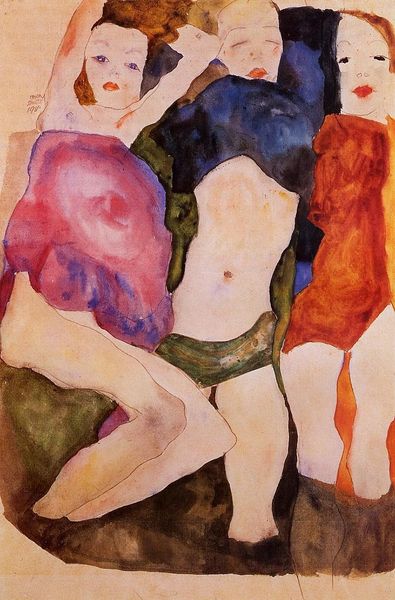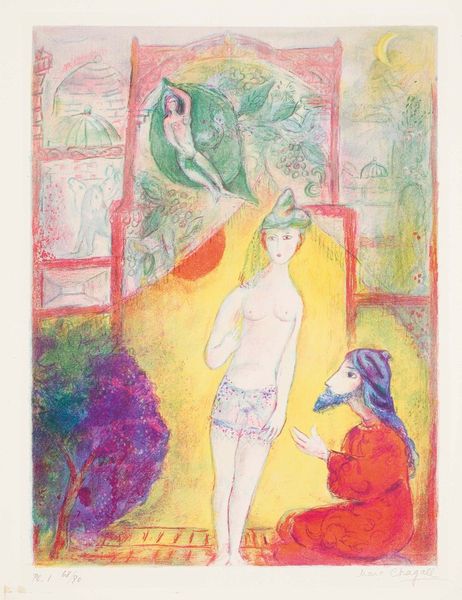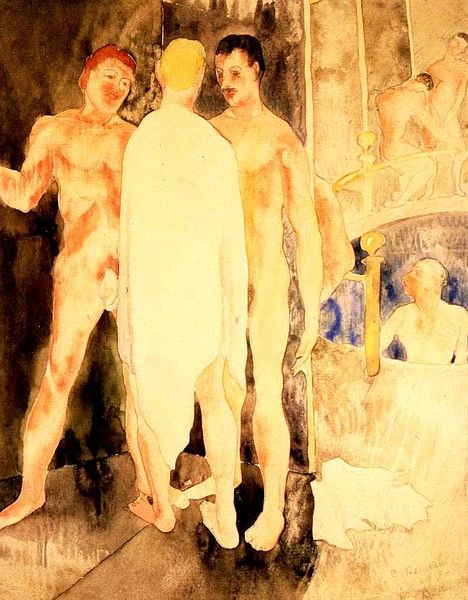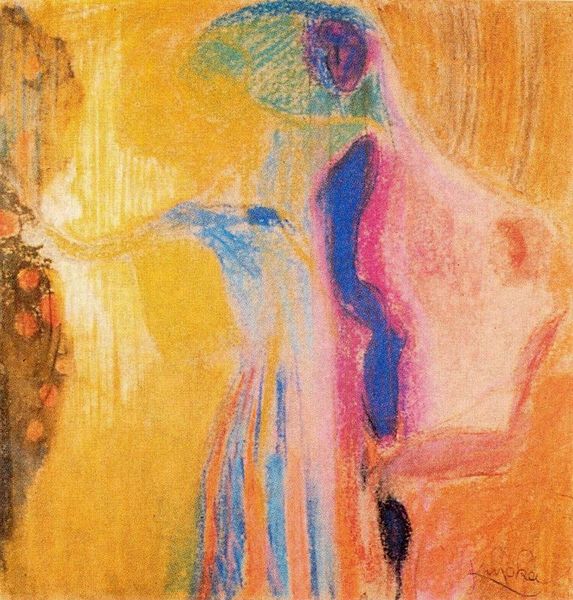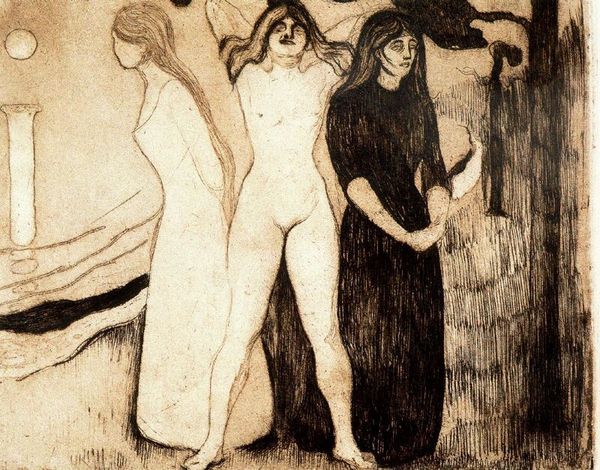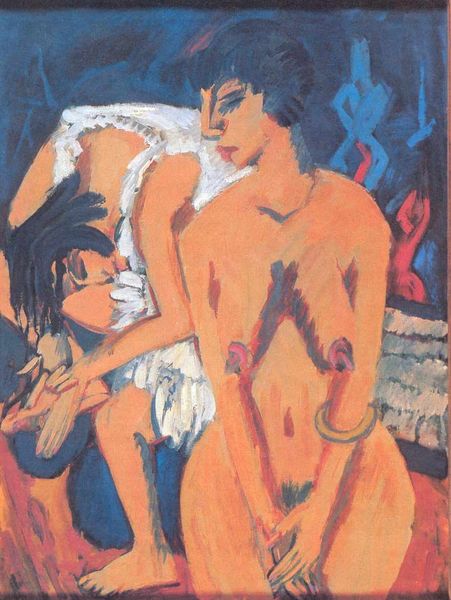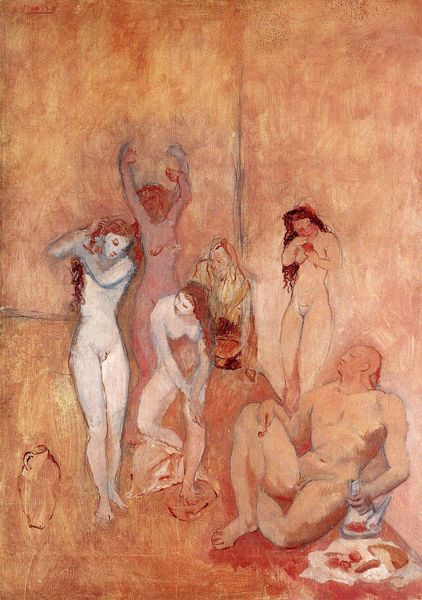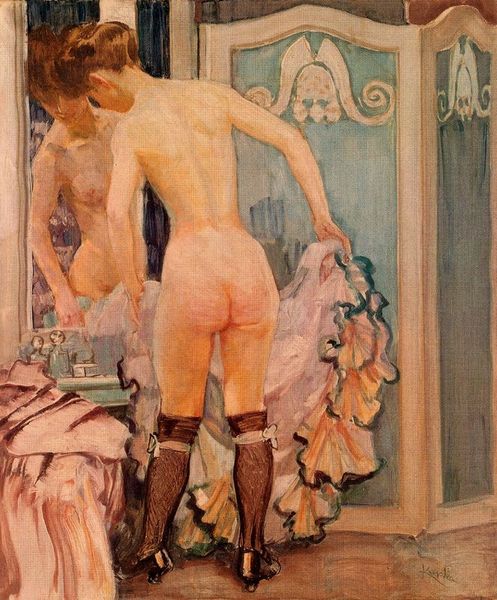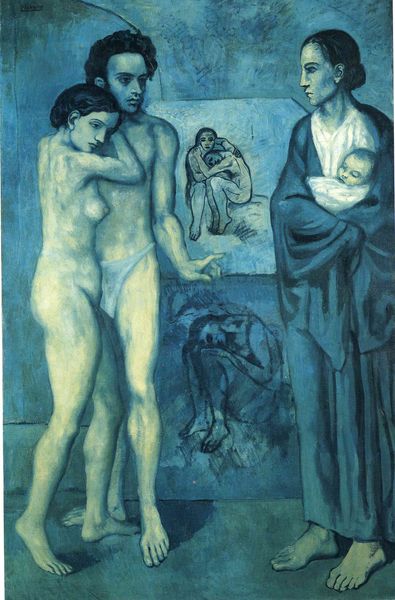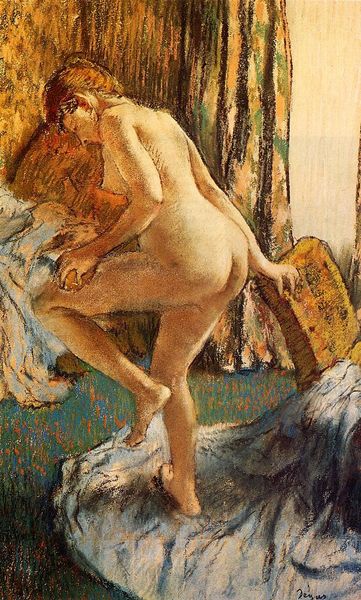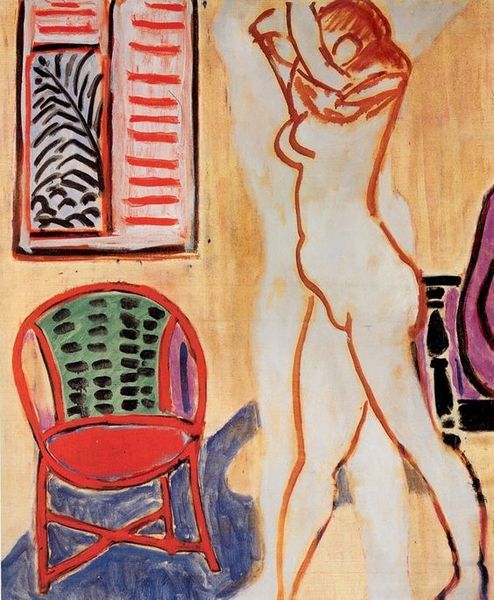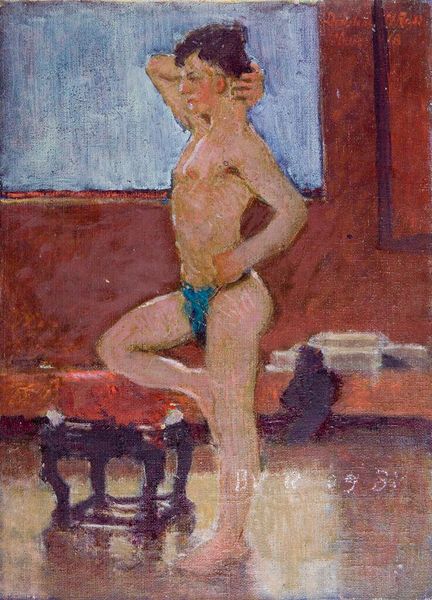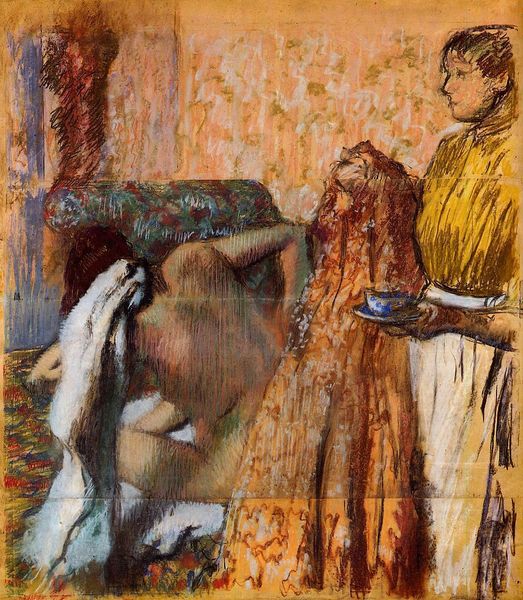
painting, watercolor
#
portrait
#
cubism
#
painting
#
figuration
#
oil painting
#
watercolor
#
genre-painting
#
nude
#
early-renaissance
Dimensions: 57.5 x 43 cm
Copyright: Public domain US
Editor: We're looking at Picasso's "Harlequin's Family," created around 1905. The oil and watercolor feel dreamlike. I find myself pondering its somewhat melancholic air. What do you see in this piece? Curator: The Harlequin figure itself carries layers of historical meaning. Initially, Harlequin represented a comic, often mischievous character. However, in Picasso's hands, the diamond pattern, the sad eyes... these become signifiers of the artist himself, an outsider figure observing the world. The pose, averted gaze, embodies the melancholy associated with the artist's struggle for recognition. Do you think this is just Picasso depicting a scene, or perhaps conveying a message about his place in society? Editor: So the harlequin is a representation of Picasso. What about the female figure and the child? Do they carry that same level of symbolic weight? Curator: The female figure, nude and gazing into a mirror, invokes Venus, but a modern Venus. The mirror doesn’t just reflect her physical form, but also implies self-awareness, even vulnerability. The child completes the triad, alluding to themes of creation, fertility, and the artist's legacy. Editor: The early Renaissance style tag feels relevant when you say that; all those themes were explored in paintings then, too. It seems like there's a story here that feels much bigger than one family or even Picasso himself. Curator: Exactly. Picasso understood that symbols evolve. He takes familiar images and invests them with contemporary anxieties and aspirations. By drawing on classical archetypes and infusing them with personal meaning, he creates a visual language that is both timeless and utterly modern. It is, perhaps, a reflection on his own struggles to create and connect in a changing world. Editor: It's amazing how much narrative he packs into seemingly simple figures. Curator: Precisely! This gives "Harlequin's Family" a staying power; the longer you look, the more stories you uncover.
Comments
No comments
Be the first to comment and join the conversation on the ultimate creative platform.
